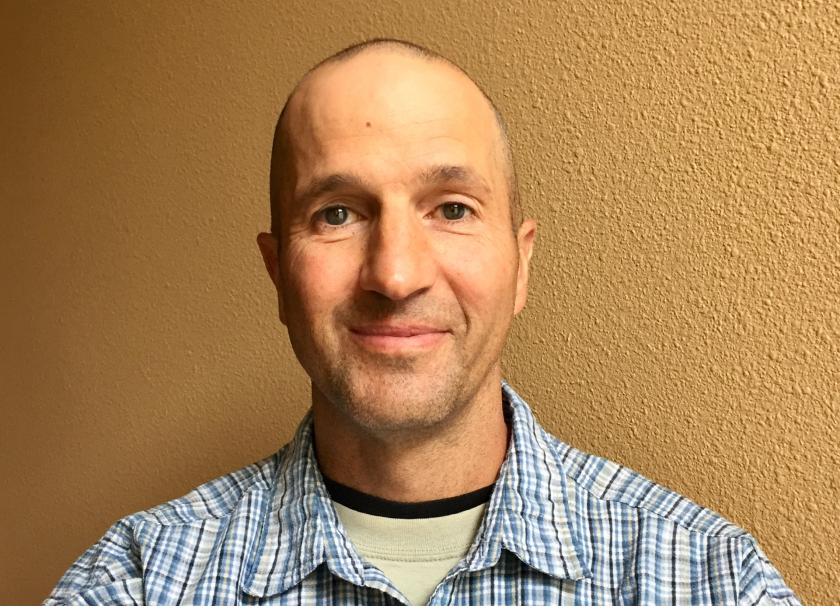
Meet Board of Director Dean Williamson
Dean Williamson is a newly elected Ashland Food Co-op Board of Director. He brings to the table a plethora of co-op experience and a love of chocolate chip cookies. We are thrilled to have him aboard and asked him to answer a few questions.
Tell us a little bit about yourself.
My wife and I are relatively new to the area, having relocated to Ashland from Bozeman, MT, where we owned a vegetable farm and where I also worked at Montana State University. Currently, I direct the Farm at SOU, and she is a massage therapist, nutrition guide and wellness guru. I served on the co-op board in Bozeman for 12 years and have also worked at the Boise Co-op, so I am happy to share what I have seen and be helpful in any way I can. I have been a teacher, and will be again in the fall of '18 (sustainable food systems at SOU); I was a creative writing major and have a Ph.D. in Native American literature. I’m left handed and purple is my favorite color. Summer days I like to fill with farms and outdoors-stuff: paddling the rivers or backpacking the mountains. And, I think there is not a single thing that can’t be made better by eating a chocolate chip cookie.
Why do you want to lead the Co-op?
I am excited to join the Ashland Food Co-op’s Board of Directors. Co-ops, as we know, do business in the best ways, guided by inclusive principles and committed to community, and organizational prosperity. For me, helping support the Ashland Food Co-op is another chance to continue to do my part to create and maintain an honorable, localized, and secure food system. As a farmer, I appreciate the Ashland Food Co-op’s commitment to locally produced food and products. I think it’s important to have a grower-perspective on the board, especially in competitive times such as these. As a former co-op board member, I am excited to offer my experience to the Ashland Food Co-op, as we grapple with the challenges of growth—not merely for the sake of expansion, but to serve the needs of the members and to spread the co-op model—and the food—to more people. As a former co-op employee, I believe a happy, dedicated, caring staff is the foundation for success; that core dedication helps support the vision for future success. The issues facing agriculture and retail grocery are challenging and complex, and so now more than ever, we need a hopeful and supportive way to thrive: the co-op way.
What is the one product from the Co-op you can't live without and why?
I think I already blew my cover on this one: it's the cookie. It's a life-long deal with me--not a problem so much as an opportunity.
More Co-op News

November Change for Good Partner: Southern Oregon Climate Action Now
November Change for Good Partner: Southern Oregon Climate Action Now
November's Change for Good Partner is

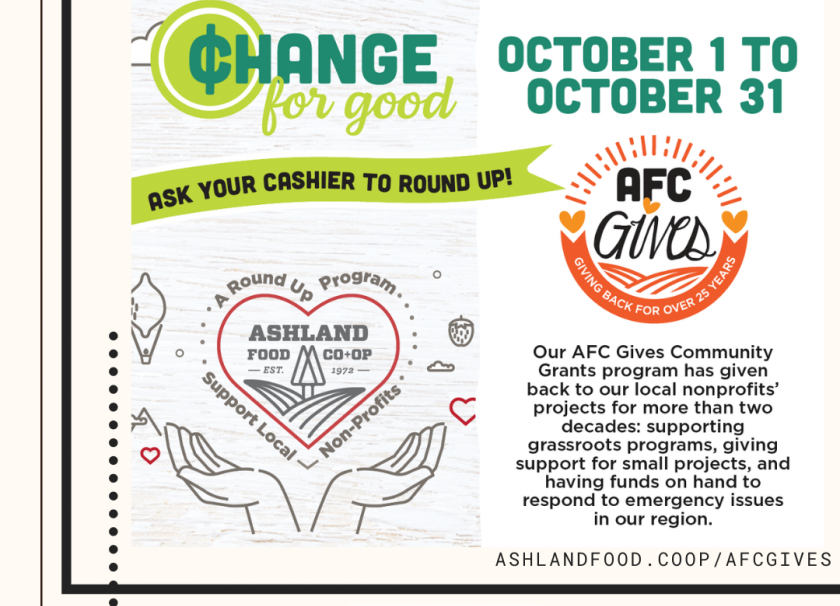
October Change for Good Partner: AFC Gives Community Fund
October's Change for Good Partner is
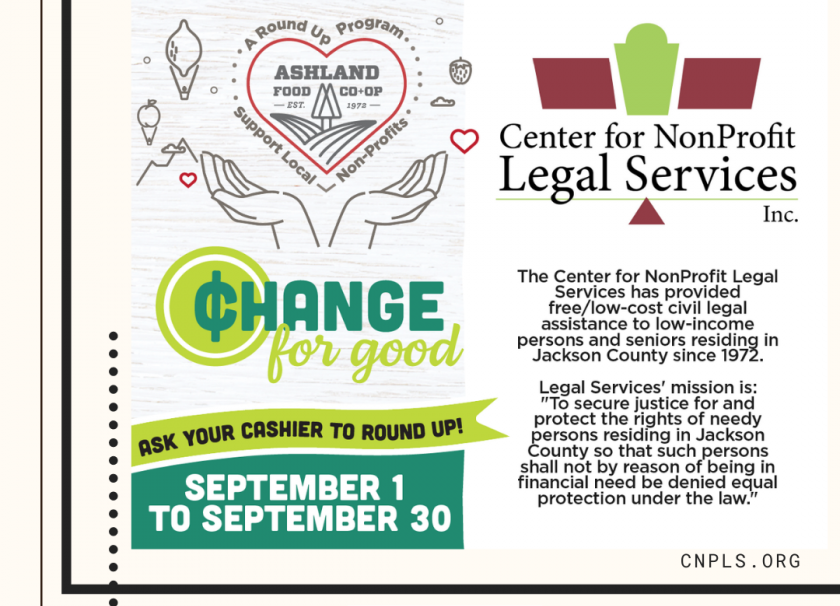
September Change for Good Partner: Center for NonProfit Legal Services
September's Change for Good Partner is
Center for NonProfit Legal Services
The Center for NonProfit Legal Services has provided free/low-cost civil legal assistance to low-income persons and seniors residing in Jackson County since 1972.

August Change for Good Partner: Klamath-Siskiyou Wildlands Center
August's Change for Good Partner is
Klamath-Siskiyou Wildlands Center
(KS Wild)
KS Wild's mission is to protect and restore wild nature in the Klamath-Siskiyou region of southwest Oregon and northwest California.


July Change for Good Partner: Southern Oregon Land Conservancy
July's Change for Good Partner is
Southern Oregon Land Conservancy
Protecting and enhancing precious land in the Rogue River region
to benefit our human and natural communities since 1978
Meet the 1st Street Beet
Welcome to the newly redesigned and reimagined newsletter from the Ashland Food Co-op: 1st Street Beet.
Think of this publication as a resource to know what’s going on in every level of the community: at the co-op, around town, in the region, and on Earth!

June Change for Good Recipient: Our Family Farms
June's Change for Good Recipient is
Our Family Farms, an Oregon 501(c)3 non profit organization, is hard at work educating and inspiring farmers, policy makers and the community at large to support regenerative agricultural practices.

Capiche Conversations: Interview with Tracy Kaiser, Marketing & Education Manager of Ashland Food Co-op
Our own marketing manager, Tracy Kaiser, was interviewed by Melissa L. Michaels for Capiche Conversations.
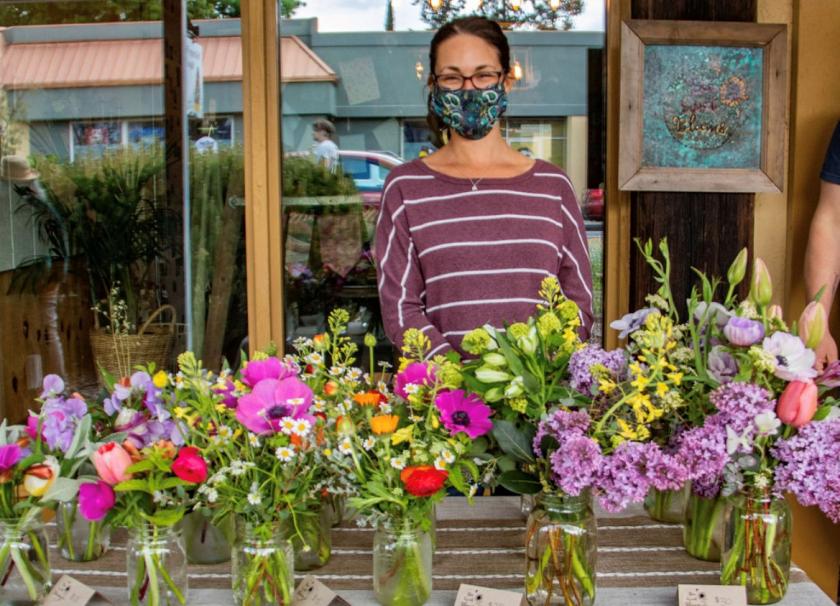
May Day Community Block Party
Photography by Chelsea Whitney Art
On May 1st, several Southern Oregon businesses came together for a block party to provide a space to gather as a community after a rough spell due to the pandemic and fires. The May Day Block Party was hosted on Main St in Phoenix, where the scent of food trucks mingled with artisan goods such as local cheeses, locally farmed flowers, and even fresh-baked pastries.
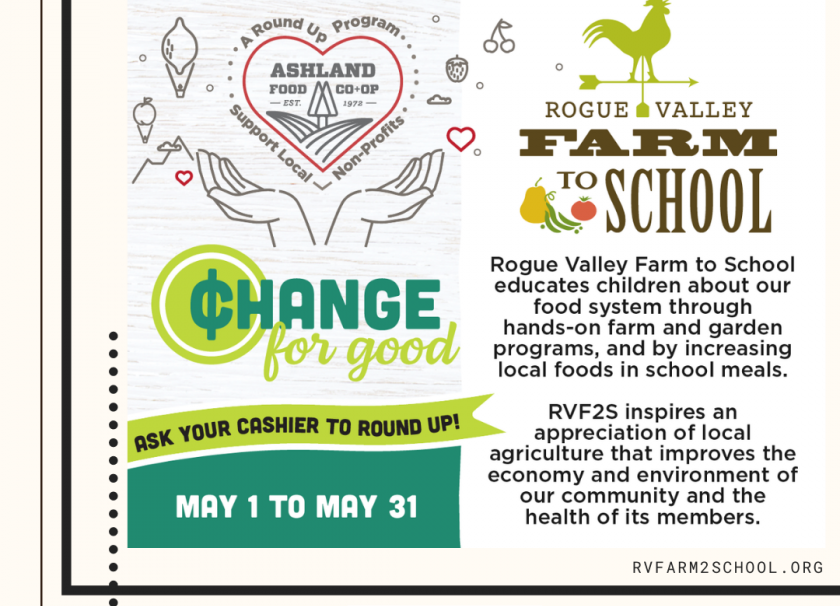
May Change for Good Recipient: Rogue Valley Farm to School
May's Change for Good Recipient is
Rogue Valley Farm to School educates children about our food system through hands-on farm and garden programs, and by increasing local foods in school meals.

April Change for Good Recipient: Pollinator Project Rogue Valley
April's Change for Good Recipient is
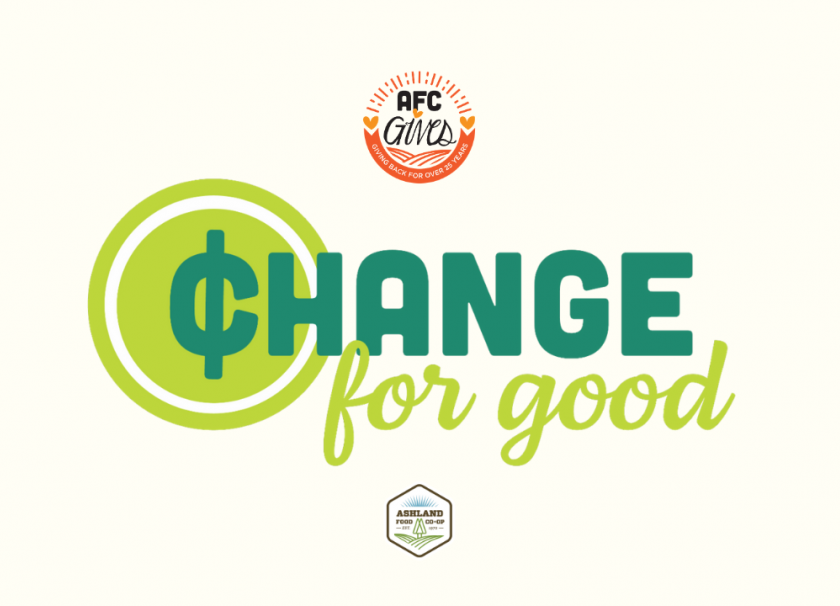
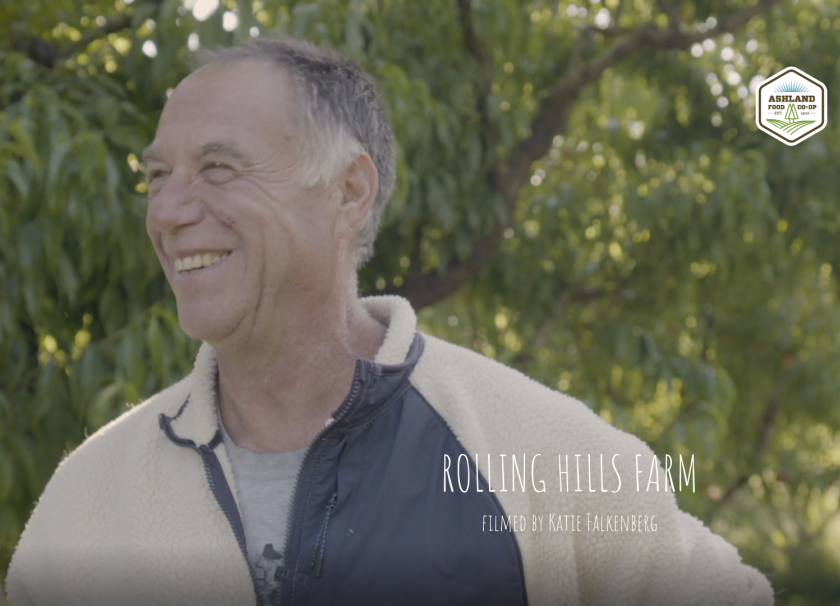
A Visit with Rolling Hills
Visit Rolling Hills Farm and learn more about owner Dave Belzberg, who the Ashland Food Co-op is so honored to partner with for more than thirty five years.

